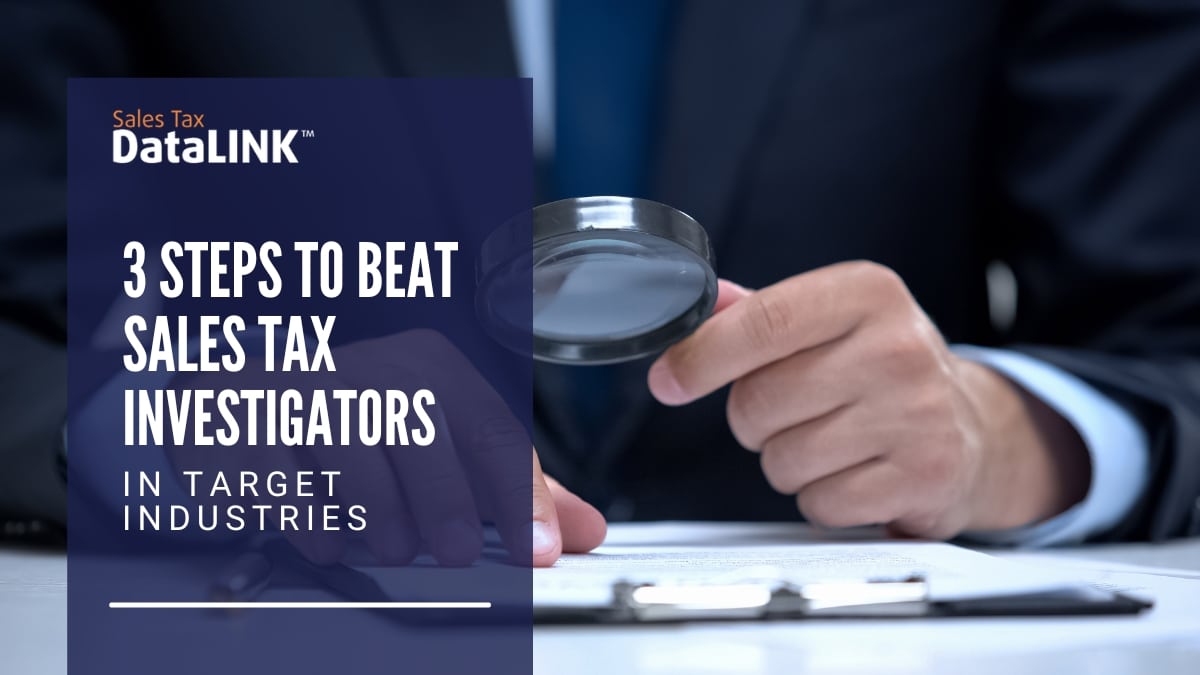Some industries are more prone to sales tax audits and dealing with sales tax investigators than others. If you’re in one of these industries, it’s important to be diligent with sales tax accounting to ensure your company can weather potential audits and the business hardships they can cause.
One such industry is New York’s art scene. The New York DA is on the hunt for sales tax offenders in the art industry, targeting art dealers with a top-secret operation to find businesses that haven’t paid up sales tax dollars. Art dealers who have complied with sales tax laws and kept extensive records aren’t safe from avoiding an audit but are far better off than countless other businesses with less-than-perfect records.
In the art dealing world, investigations like these have caused mass panic, torn apart working relationships, killed businesses, and generated thousands of dollars in defense attorney bills. Taking steps to prevent your business from being a target and ensuring you can deal with an audit should one happen is important to protecting your business and yourself.
Art Dealers Evading Sales Tax
According to ArtNet’s recent series of articles about New York’s sales tax investigation, scoffing at sales tax in the art dealing industry is no laughing matter.
The last time the DA’s Office launched a similar large-scale effort in this area was in 2003. Many prominent galleries and art dealers were ensnared in that investigation, which resulted in numerous felony pleas and over $26 million in fines and tax restitution.
Some offenses are so completely cringe-worthy that no reasonable business would commit them. For instance, one famous art buyer and tax evader named Dennis Kozlowski mailed paintings to New Hampshire to avoid creating a nexus and paying millions in taxes for the artwork.
Certain industries tend to attract sales tax and white-collar offenders. It’s no wonder that the New York DA’s office is again targeting the lucrative art industry for sales tax underpayments, especially considering the work they’ve done to build the state’s sales tax coffers in the past.
Are You in a Sales Tax Audit Prone Industry?
Auditors already have the tough job of going through paper trails to find hidden sales tax money due to the state. So why go to great lengths sorting through more paperwork to find small amounts of missing sales tax money when there is low-hanging, heavy fruit?
Some industries tend to get audited for sales tax more often than others because of a number of reasons. It might be that the industry has a history of underreporting sales tax, like the art industry, or it might be easy to incorrectly report. Some industries operate on a “cash” basis which makes them prone to underreporting while other industries have high invoice amounts that produce huge sales tax underpayments with small errors.
You might be in a target industry if you’re in:
- Automotive sales
- Liquor sales
- Tobacco sales
- Real property businesses
- Restaurants
- High-priced sales
High invoice sales might be things like heavy or light construction equipment and office equipment, all of which were the highest audited in California in 2009.
3 Steps Keep Your Company’s Sales Taxes in Order
Of course, no one is looking to get caught up in an art dealing sales tax sting and you, no doubt, focus on practicing sound accounting. So what can you do to prevent being the target of a sales tax investigation in industries that are common targets for audits, like the art industry?
- Keep immaculate records. One of the things auditors look for is incomplete records, including invoices, bills of sale, and documentation about resellers. If someone says they don’t need to pay sales tax, only give in once the customer has produced the right documentation for your state. Then file it away in an easy-to-access filing system so you can defend yourself later if it comes to that.
- Pay sales tax timely. Penalties and late fees can really add up if you do lots of high volume or high dollar sales. Keeping track of deadlines, filing on time, and sending in payments is important to stay out of sales tax investigator’s crosshairs. Don’t give auditors a reason to target you by missing deadlines.
- Self-audit and report regularly. Unless you’re checking your sales tax filings, you have no way of knowing definitively if they’re correct. In fact, we see a 4-7% error rate on average for companies that use sales tax engines during invoicing. You’re bound to have errors in your sales tax reporting. Self-audit, report the under and overpayments, and cover all your bases.
Doing these three steps can make a huge difference between becoming a target of investigations and dodging sales tax bullets. Having great records and self-reporting will also make audits easier should auditors strike.
P.S. Don’t know where to start? Don’t have time to self-audit? We can help.




